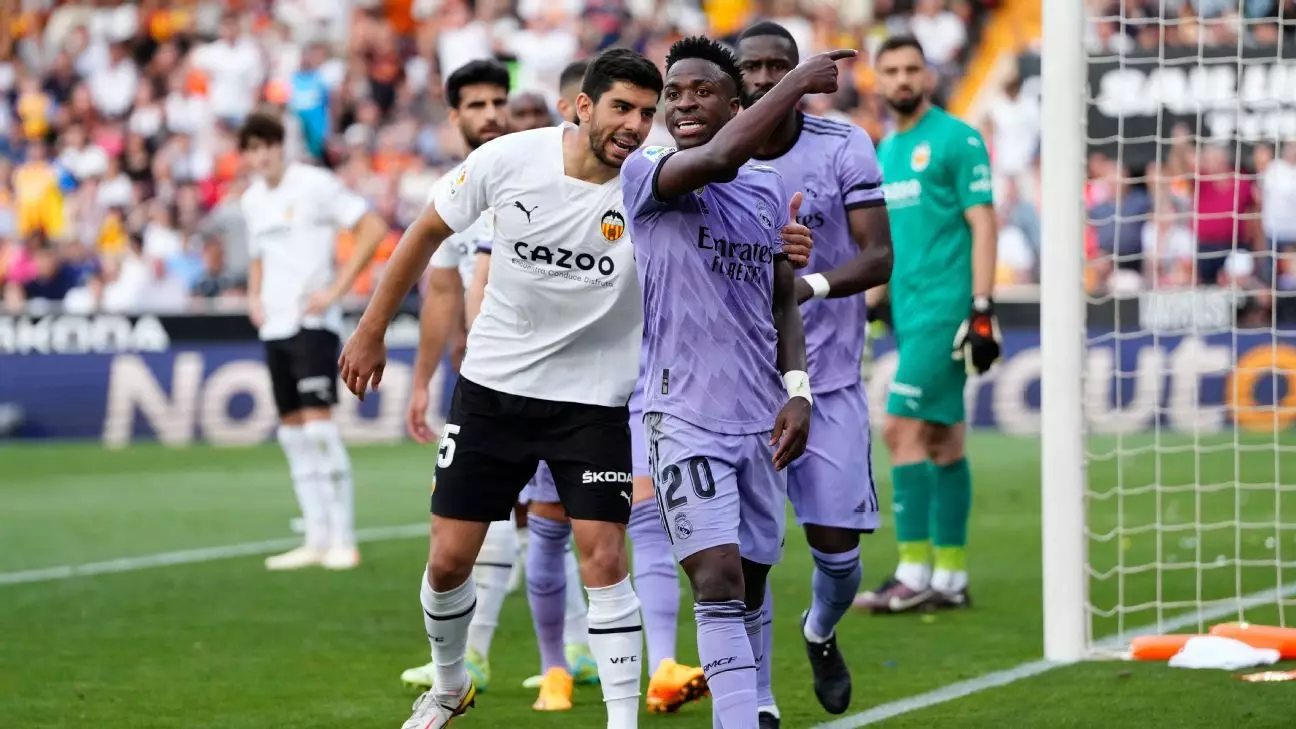In May 2024, a significant development occurred in the fight against racism in football as the Spanish LaLiga and the Spanish Football Federation (RFEF) endorsed FIFA’s newly introduced “No Racism” gesture. This “cross-arm” signal serves an important function: it enables referees to effectively communicate incidents of racism during matches. The implementation of this gesture is a reflection of growing concerns regarding the prevalence of racial abuse in Spanish football, particularly involving prominent figures like Real Madrid’s Vinícius Júnior, who has been vocal in demanding greater accountability and action.
Background of Racism in Spanish Football
Racism within Spanish football has been thrown into sharp relief following numerous high-profile incidents. Vinícius Júnior, a key figure in these discussions, has repeatedly come under fire from opposition fans, bringing national and international attention to the issue. A landmark moment occurred earlier this year when three fans were sentenced to prison for their racist abuse directed at him during a match at Valencia’s Mestalla Stadium. This marked the first instance of such a conviction in Spain, signaling a potential turning point in how racially motivated misconduct is addressed within the sport.
The new “cross-arm” gesture will not only serve as a visible condemnation of racism but also trigger a structured response to it. According to the three-step protocol set by FIFA, referees will use the gesture to pause the match and announce over the stadium’s public address system that a suspension may follow if similar behavior persists. Should the racism continue, the match could be temporarily suspended, and eventually abandoned altogether after consulting with security and club officials. This systematic approach aims to ensure that spectators and players alike understand that racist behavior will not be tolerated on any level.
Vinícius Júnior has emerged as an influential voice in these discussions, passionately advocating for change. In a recent CNN interview, he expressed a willingness to walk off the pitch if subjected to further racist abuse. He criticized LaLiga for not doing enough to combat racism, claiming that such behavior has unfortunately become normalized within the league. The Brazilian forward asserted, “If racism is not handled now, Spain should lose the right to host the 2030 World Cup,” showcasing the gravity of the situation. His remarks served not only to spotlight the issue but also to hold authorities accountable for failing to protect players from racial abuse.
In response to the growing criticism, LaLiga and its president, Javier Tebas, have denied claims that racism is accepted in Spanish football. They have called for more stringent governmental powers to penalize racial offenders effectively. However, whether this initiative will translate into meaningful action remains to be seen. The onus, after all, falls on both governing bodies and fans to ensure that the promise of accountability leads to substantial change.
The “No Racism” gesture is just the beginning of a much bigger conversation about racism’s deep-rooted presence in sports culture. It serves as a call to action for stakeholders across the footballing world. Fans, organizations, players, and governing bodies must unite to foster a safe and inclusive environment, ensuring that the sport can be enjoyed by everyone without fear of discrimination.
While the introduction of the “No Racism” gesture signifies an important step towards combating racism in Spanish football, it’s imperative that this move be accompanied by sustained efforts to eradicate bigotry in all its forms. As the spotlight remains on LaLiga and its practices, the expectations for accountability and reform are higher than ever. The actions taken now will serve as a crucial benchmark for future progress. Ultimately, ensuring safety and respect on the pitch is not just the responsibility of a few individuals but a collective duty that every stakeholder in the sport must share.

Leave a Reply